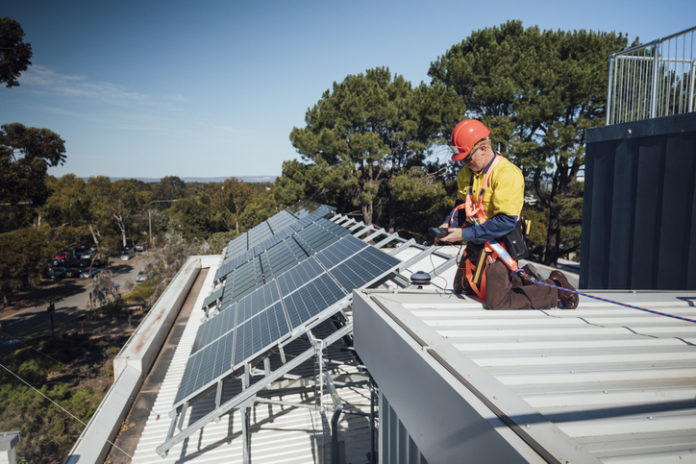Switching to electric vehicles that use renewable power and expanding its solar power rollout at key facilities are among the proposals to help Coffs Harbour Council reach its renewable energy and emissions reductions goals for 2030.
An independent review of Council’s 2016 Renewable Energy and Emissions Reduction Plan (REERP) has outlined further steps that can be taken to reach its stated aims of:
- Reduction in annual corporate emissions (tonnes CO2-e) from 2010 levels by 50% by 2025;
- The use of 100% renewables by the organisation by 2030.
The first phase of the Plan is now close to completion and the independent review has been undertaken to map out the subsequent pathway for the next 10 to 15 years.
“Council adopted the REERP in 2016 as a blueprint for actions to meet its corporate Renewable Energy and Emissions Reduction Targets,” said Council Section Leader Community Planning and Engagement, Madeleine Lawler.
“The MyCoffs Community Strategic Plan and Customer Satisfaction Surveys of 2020 demonstrate the value the community places on the natural environment and lifestyle we enjoy. The Plan allows Coffs Harbour City Council to show leadership locally in ways to help mitigate the overall impacts of climate change – and it also translates into significant cost and efficiency savings.”
Central to the 2016 Plan has been a major push to install solar energy systems at 16 Council-owned facilities including works depots, libraries, holiday parks, water reclamation plants and swimming pools. Due to the COVID-19 pandemic, 11 installations have been completed with five more planned to be finished by the end of 2021.
The revised REERP has suggested that the solar rollout be expanded to include a further 13 sites, as well as an increase in solar capacity at six existing locations.
Other key action areas include:
- Procurement of 100% renewable electricity;
- Implement an ongoing program to improve energy and water efficiency in Council buildings;
- Public lighting upgrades that will replace all major road lighting with LEDs coupled with smart control systems;
- Transition to the use of electric vehicles that use power from renewable electricity sources in Council’s fleet; and
- Purchase offsets for residual emissions.
Another key area is reducing landfill emissions.
“Current landfill management and practices employed by Council already achieve significant emissions savings,” said Director Sustainable Infrastructure, Mick Raby.
“Further reduction in landfill emissions, however, will be difficult to achieve during the life of the current waste contracts which run to 2027. The development of a new waste-to-energy facility after 2027 – or the diversion of landfill to a regional facility – present good opportunities to further reduce landfill emissions and achieve net zero by 2033.”
The revised REERP will be on public exhibition for comment from 1–30 June 2021 at Council’s Have Your Say website.


